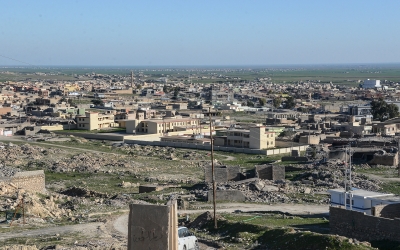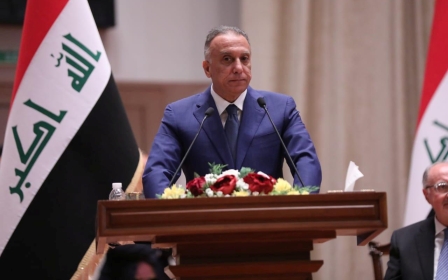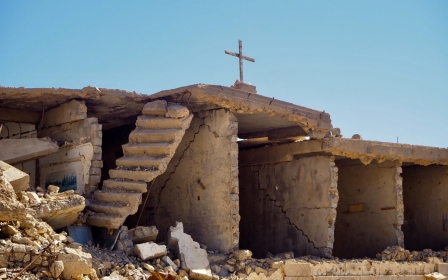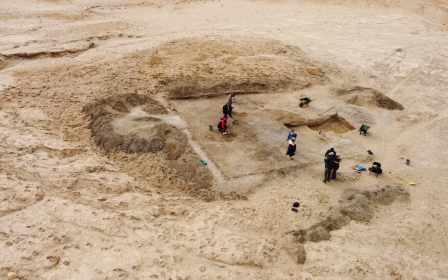Iraq: Yazidis flee as army launches offensive on Sinjar armed group
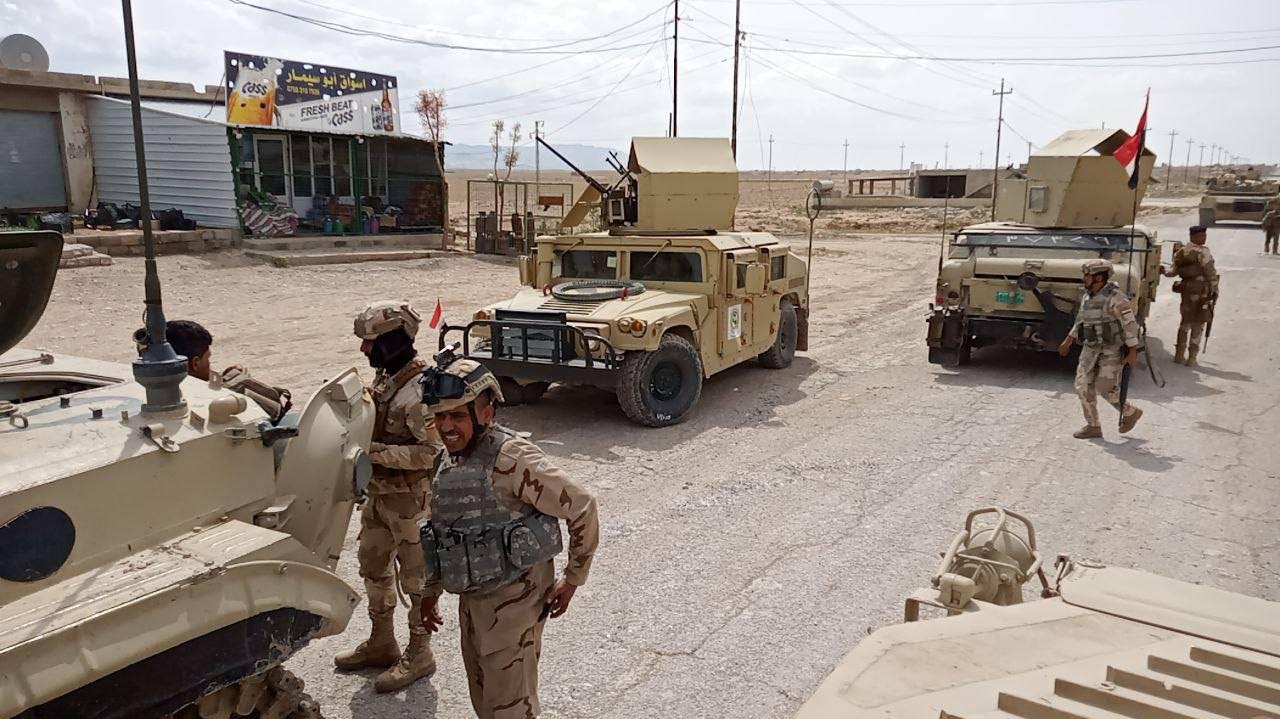
Residents of the northern Iraqi province of Sinjar are bracing themselves for another bout of violence after Baghdad launched a military operation to clear the region of forces linked to the Kurdistan Workers' Party (PKK).
On Sunday evening, heavy fighting erupted between the Iraqi army and the Sinjar Resistance Units (YBS) - an armed group composed of members of the Yazidi religious minority who largely live in Sinjar - near Dugri. On Monday the fighting also spread to the town of Sinune.
The clashes have seen Sinjar residents once again displaced from their homes. A Kurdish official told the Kurdistan 24 news website that around 200 families had been displaced by the fighting and were on their way to neighbouring Duhok, a province controlled by the Kurdistan Regional Government (KRG).
Farhad Ali, a Yazidi in Sinjar, told Middle East Eye that they were "scared and don’t know what to do".
"Many families returned to Duhok and if the war continues like this, I am sure many others will return to the Kurdistan region too," he said.
New MEE newsletter: Jerusalem Dispatch
Sign up to get the latest insights and analysis on Israel-Palestine, alongside Turkey Unpacked and other MEE newsletters
The YBS has controlled much of Sinjar since 2014 when, along with allied PKK fighters, they helped drive out the Islamic State group (IS) from the province. Though the PKK officially announced their withdrawal in 2018, the YBS remained.
IS carried out mass executions of at least 5,000 Yazidis in Sinjar in 2014 - in what has been branded a genocide by courts and rights groups - and abducted hundreds of women and girls.
Thousands of Yazidis remain displaced in camps in Iraqi Kurdistan, unwilling to return to Sinjar due to the unstable security and economic conditions.
The presence of the YBS in Sinjar, which borders Turkey, has enraged Ankara. The YBS is supported by the PKK, which has carried out a guerilla conflict with Turkey since 1984 for greater rights and autonomy for Kurds. Turkey has repeatedly carried out air strikes on Sinjar against purported PKK targets, and is currently waging an offensive against the Kurdish militants in northern Iraq.
In October 2020, Baghdad and the devolved Kurdistan Regional Government (KRG) signed an agreement on joint management of Sinjar, which included a stipulation that all non-federal armed forces should leave the province.
However, despite sporadic clashes between the army and YBS in recent months, there were no decisive moves taken before Sunday to implement this policy.
Residents said the Iraqi army arrived from Mosul on Sunday evening.
“The Iraqi army started attacking the PKK points and locations in Dugri and heavy clashes erupted between them," Sherzad Abdullah, a medic based in Sinjar, told MEE via phone.
According to Abdullah, heavy weapons, warplanes and helicopters have been used by the Iraqi army, and a school that contained PKK fighters was bombed in Dugri.
“Then they moved to Sinune and heavy clashes erupted there amidst the fear and panic of the citizens," he said, adding that people were shocked that clashes were taking place in residential areas of Dugri and Sinune.
He said there had been injuries and deaths on both sides.
'Armed manifestations'
The renewed tensions between the Iraqi army and the YBS come after a new Turkish operation against the PKK in Duhok province on 18 April.
Turkey has heavily opposed the presence of the YBS and has carried out several air strikes on its leaders in the past.
Iraq's spokesman for joint operations, Major General Tahsin al-Khafaji, told the Alahed website on Monday that the Iraqi army would not allow any "armed manifestations" in Sinjar and called for the YBS to withdraw.
'It is devastating... it is heartbreaking to see our people paying the price of every failure'
- Murad Ismael, activist
There were already expectations that conflict would erupt between the YBS and the Iraqi army in Sinjar before May, with the arrival of a senior Iraqi army delegation to Sinjar last Saturday and on 21 April to discuss the situation.
Xebat Ereb, a YBS commander, told the Kurdish ANF news website that his group would defend itself.
"We are ready for any possible attack on the region. We are defending ourselves. We came to these days thanks to our martyrs, and we have the right to defend and govern ourselves," he said.
Abdulla Hawaz, a Kurdish political commentator, suggested that Iraq's hand had been forced by Turkey.
"Iraq has tried to crack down on YBS before but all indications are that this time they are serious - Iraq has an agreement with KRG to remove pro-PKK elements from Sinjar," he wrote on Twitter.
"I suspect Turkey has given an ultimatum, either Iraq removes them or it takes things into its own hands."
'Once again forced to flee'
A number of activists and commentators took to social media to decry the fighting in Sinjar.
In particular, many were critical of violence once again forcing Yazidis to flee their homes only a few years after the atrocities they suffered at the hands of IS.
“Recent returnees are once again forced to flee their homes due to current armed clashes in Sinjar," tweeted prominent Yazidi activist and Nobel Peace Prize winner Nadia Murad.
Murad Ismael, president of the Sinjar Academy and a prominent Yazidi activist based in the US, also condemned the fighting.
“We strongly condemn escalation in Sinjar and call for an immediate end to the fighting. This is a political war, resulting from a political situation, and not [a] war on terrorism, which means it can be addressed through dialogue," he told MEE.
“It is devastating... it is heartbreaking to see our people paying the price of every failure.”
While the YBS has been hailed in the past for defending Sinjar against IS, Ali said residents were becoming increasingly sick of instability and conflict between different factions.
Ali said he would prefer to see Sinjar protected by an officially approved Yazidi force.
“If the [October 2020] agreement is implemented, it would be good for the Yazidis.”
Middle East Eye delivers independent and unrivalled coverage and analysis of the Middle East, North Africa and beyond. To learn more about republishing this content and the associated fees, please fill out this form. More about MEE can be found here.


